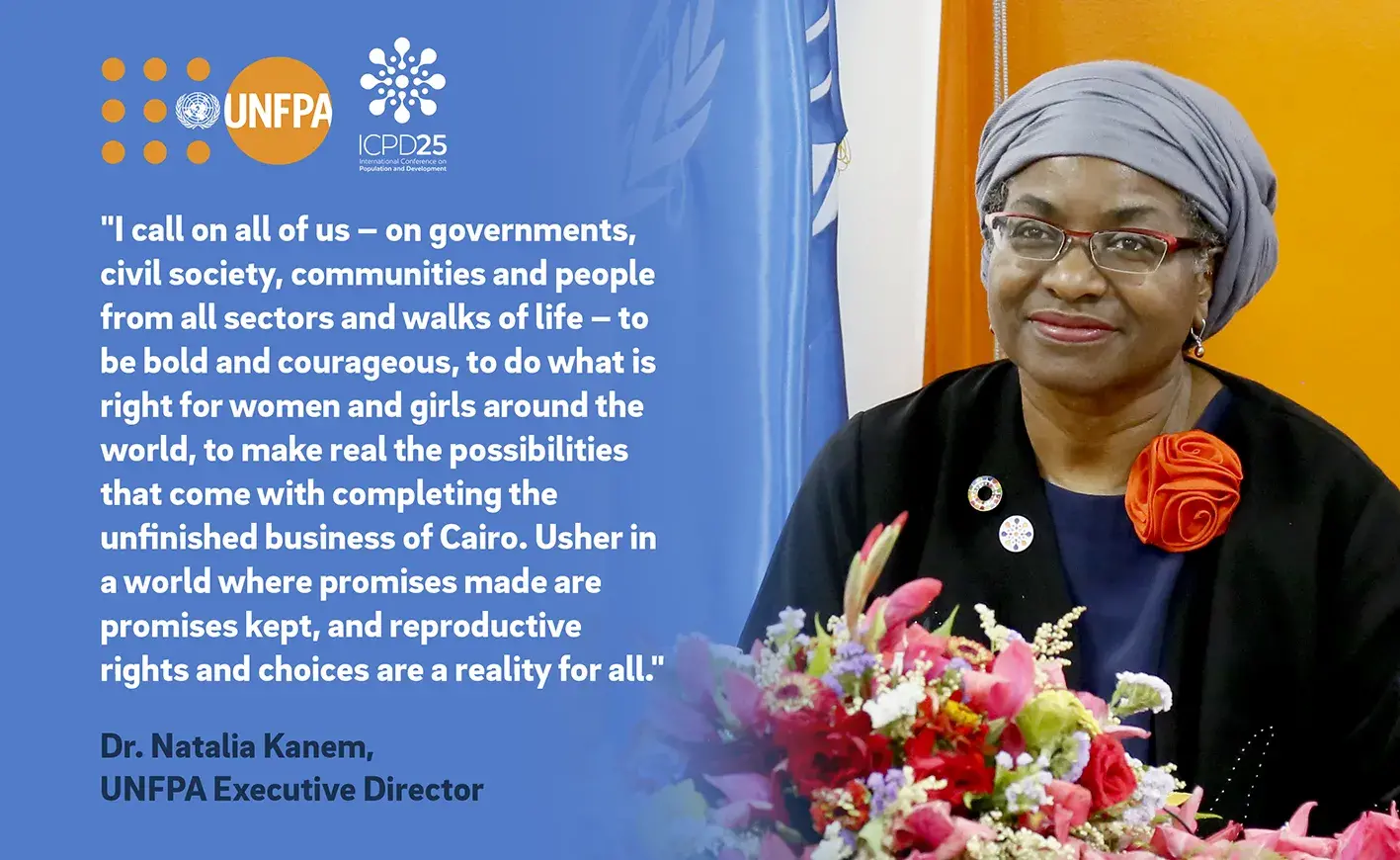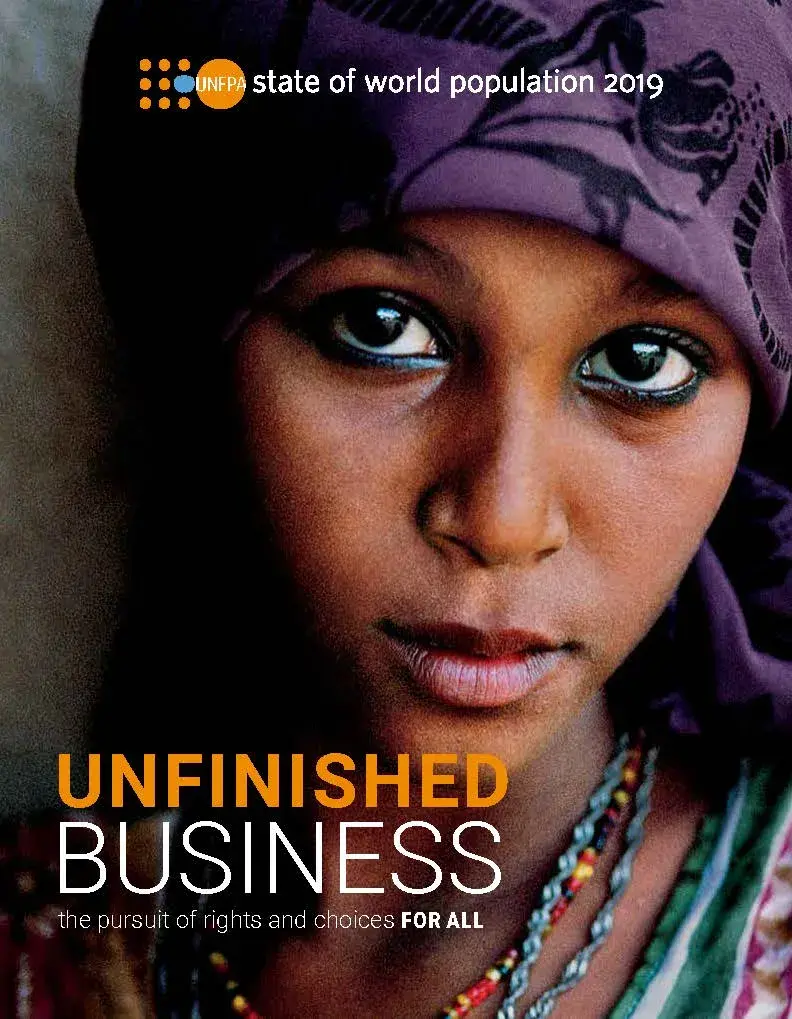Kabul, 3 November 2013
- Excellency, Dr. Suraya Dalil, Honourable Minister of Public Health,
- Distinguished guests, ladies and gentlemen. Good Morning.
- On behalf of UNFPA, I thank you all for joining us in the launch of the State of World Population Report 2013. This year's theme is Adolescent Pregnancy, that is"Motherhood in Childhood". This theme was chosen as an appeal to governments, communities and families all over the world to protect the lives of adolescent females, by preventing them from having children when they themselves are still children.
- Every day, 20,000 girls, below the age of 18 years, give birth in developing countries. This translates to 7.3 million adolescent births annually, of which 2 million are births to girls less than 15 years. About 19 percent of young females in these countries become pregnant before age 18.
- In Afghanistan, adolescent girls who become pregnant are married. This makes tackling early marriage even more vital. The Afghanistan Multiple Indicator Cluster Survey found that 1 in 5 young women aged 15-19 years is currently married. About 15% of women aged 15-49 years were married before the age of 15. About 1 in 4 women aged 20-24 years had already had a live birth before 18 years.
- Adolescent girls, who are married at an early age, living in poor and rural households, are at particular risk of early and unintended pregnancy. They are often vulnerable to sexual violence and coercion, without access to comprehensive sexuality education, and no longer in school. They often lack access to reproductive health services, including contraception.
- Young married girls are under pressure to demonstrate their ability to bear children. They are responsible for having and raising children while they are still children themselves.
- Adolescent mothers are more likely to die from complications of pregnancy and childbirth than older females. Pregnancy and childbirth complications are the leading cause of death among adolescent girls aged 15-19, resulting in 70,000 deaths to adolescent girls every year.
- Adolescent mothers are also more likely to suffer severe disabilities, including obstetric fistula; a condition which occurs as a result of prolonged, obstructed labor that results in damage to the pelvic floor with subsequent incontinence.
- Girls less than 15 are twice more likely to die or contract fistula due to pregnancy related complications, than girls in their 20s. It also adversely impacts her baby. It is these children that we need to pay particular attention to and help society - families and communities - protect them from becoming mothers during their childhood.
- Preventing this tragedy requires that we protect their right to education and to health, and that we empower them to make their own life choices.
- Adolescent or early pregnancy is not merely a health issue but a development issue. It affects a girl's ability to complete her education and fulfil her dreams. It fuels poverty and economic inequities; gender inequality; violence; and lack of the girl's right that contributed to the adolescent unintended pregnancy in the first place. The price of adolescent pregnancy is a lost potential for the adolescent girl and a huge economic loss to the family, the community and the country.
- A study in Kenya found that if 200,000 adolescent mothers were employed instead of becoming pregnant, $3.4 billion would have been added to the economy.
- This report highlights UNFPA's new ecological approach - one that does not target the girl herself, but targets parents, families and communities to protect and empower girls to make choices for themselves. It includes keeping girls in school; stopping child marriage; changing attitudes about gender roles and gender equality; increasing adolescents' access to sexual and reproductive health, including contraception; and providing better support to adolescent mothers.
- Globally, UNFPA works with the government and communities to support age-appropriate, comprehensive sexuality education and youth friendly health services.
- We, UNFPA in Afghanistan, partner with government, religious leaders and communities to eliminate early child marriage and promote birth spacing. We reassure you, the government and people of Afghanistan, UNFPA will continue to do its utmost to support government's early marriage campaign, aimed at increasing and enforcing the legal age of marriage.
- UNFPA will continue to partner with government, development partners and NGOs to support programmes that identify and increase the opportunities of the most vulnerable girls at risk of child marriage and early pregnancy. We would also like to strengthen partnerships with the religious and community leaders, as agents of change, to bring about real gender transformation from a young age in society to ensure Afghan girls are empowered.
- Early pregnancy is a development issue in Afghanistan, which, if strategically addressed, will require an "all of society" holistic approach. Through working together, we believe the lives of adolescent girls, their families and communities, will be transformed now and for generations to come. This is our opportunity to act together and change the lives of young girls, who are currently having children and as a consequence unnecessarily dying in childbirth, suffering from fistula or having fewer life choices. We must give all girls a future.
Thank you




